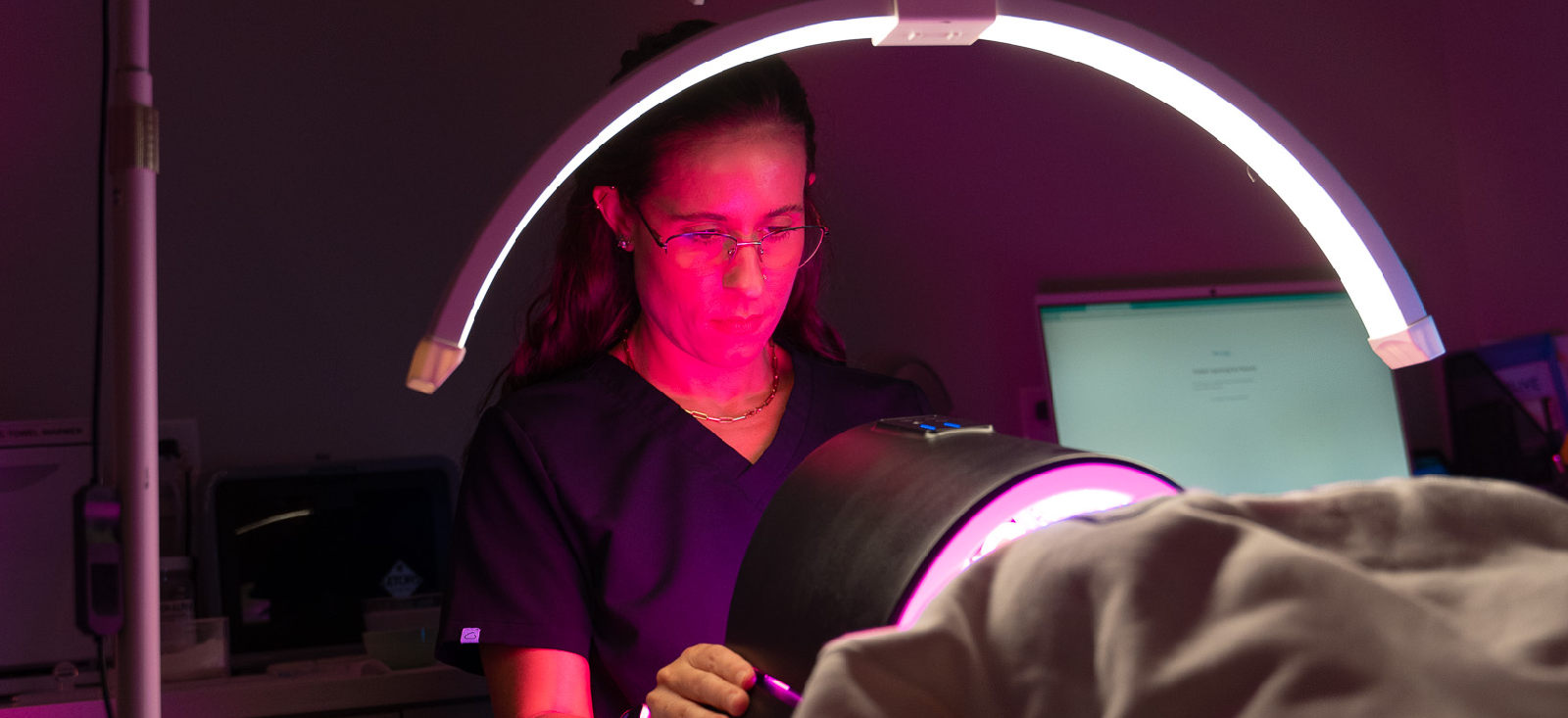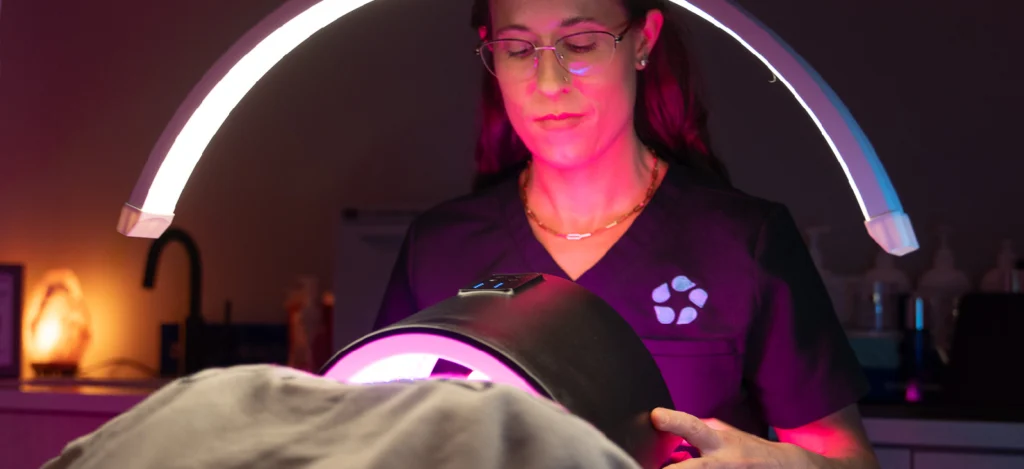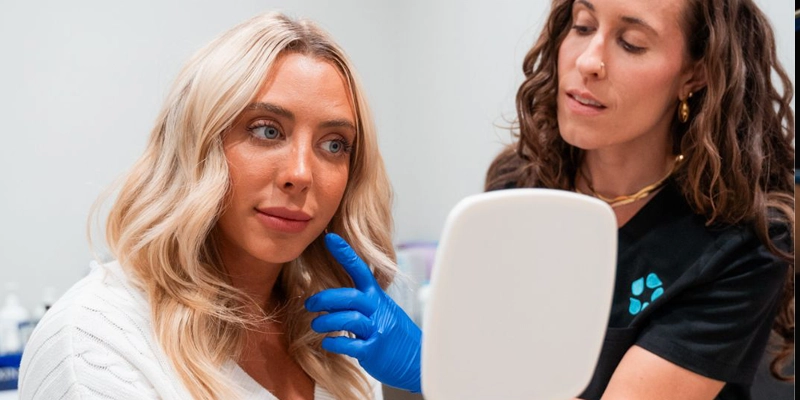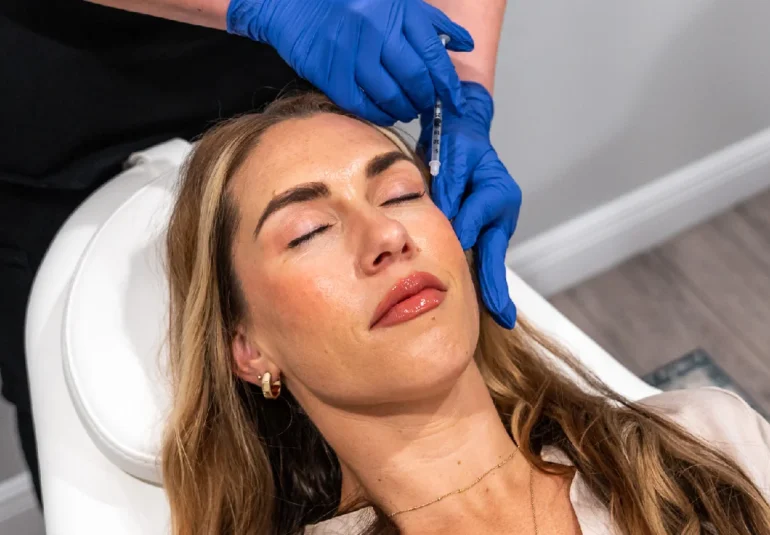

Table of Contents
Introduction
Skin conditions are more than just surface-level concerns; they can profoundly affect an individual’s overall well-being, impacting both physical health and emotional wellness. At Relive Health Hendersonville, we recognize the significant burden that skin conditions can impose on individuals, which is why we are dedicated to offering innovative treatment options aimed at improving skin health and enhancing quality of life. One such treatment modality that we specialize in is UV light therapy, a therapeutic approach that harnesses the power of ultraviolet light to effectively manage a wide range of dermatological conditions.
In this blog post, we delve into the intricacies of UV light therapy, shedding light on how this treatment modality works, the diverse array of skin conditions it can address, and whether it may be the right choice for you. By exploring the science behind UV light therapy and its therapeutic benefits, we aim to provide you with valuable insights into this cutting-edge treatment option and empower you to make informed decisions about your skin health.
Through a comprehensive examination of UV light therapy, we endeavor to demystify this innovative treatment approach, dispel common misconceptions, and highlight its potential as a viable solution for individuals struggling with various dermatological conditions. Whether you’re grappling with psoriasis, eczema, vitiligo, or other skin concerns, we invite you to embark on a journey of discovery as we explore the transformative power of UV light therapy and its role in promoting healthier, happier skin.

Understanding UV Light Therapy
UV light therapy, also known as phototherapy, represents a sophisticated treatment modality that harnesses the therapeutic potential of specific wavelengths of ultraviolet light to address a myriad of dermatological concerns. This advanced therapeutic approach involves exposing the skin to controlled doses of UV light, carefully calibrated to achieve optimal therapeutic outcomes while minimizing potential risks.
At its core, UV light therapy operates on the premise that ultraviolet light possesses remarkable anti-inflammatory and immunomodulatory properties, making it a valuable tool in the management of various skin conditions. Through targeted exposure to UV light, phototherapy aims to modulate the immune response within the skin, alleviate inflammation, and promote the healing of damaged tissues.
The mechanisms underlying the therapeutic effects of UV light therapy are multifaceted and complex. One key mechanism involves the activation of immune cells known as T lymphocytes, which play a pivotal role in the immune response. UV light exposure triggers a cascade of cellular signaling pathways that ultimately result in the suppression of inflammatory processes within the skin, leading to symptomatic relief and improved disease management.
Furthermore, UV light therapy is thought to exert profound effects on the proliferation and differentiation of skin cells, influencing processes such as epidermal turnover and keratinocyte maturation. By modulating these cellular processes, phototherapy helps restore the structural integrity of the skin, reduce abnormal cell growth, and promote the regeneration of healthy skin tissue.
The therapeutic benefits of UV light therapy extend beyond its anti-inflammatory and immunomodulatory effects. UVB light, in particular, has been shown to stimulate the production of vitamin D in the skin, a vital nutrient that plays a crucial role in immune function and overall health. Additionally, UV light therapy has been found to have antimicrobial properties, making it an effective adjunctive treatment for certain infectious skin conditions.
Overall, UV light therapy represents a powerful therapeutic tool in the armamentarium of dermatological treatments, offering a safe, effective, and non-invasive approach to managing a wide range of skin conditions. From psoriasis and eczema to vitiligo and dermatitis, UV light therapy holds promise as a cornerstone therapy for individuals seeking relief from chronic skin conditions and improved quality of life.
Mechanism of Action
Psoriasis, a chronic autoimmune condition characterized by rapid skin cell turnover, often manifests as red, scaly patches known as plaques. UV light therapy has emerged as a cornerstone treatment for psoriasis, offering a targeted approach to modulating the underlying inflammatory processes and slowing down the excessive cell proliferation that drives the disease progression. By exposing the skin to specific wavelengths of UV light, particularly UVB light, phototherapy helps to suppress the hyperactive immune response within the skin, thereby reducing the formation of plaques and alleviating inflammation. This therapeutic intervention not only improves the appearance of psoriatic lesions but also provides symptomatic relief from itching, burning, and discomfort, enhancing the overall quality of life for individuals living with psoriasis.
Vitiligo, a condition characterized by the loss of skin pigment, results from the destruction or dysfunction of melanocytes, the cells responsible for producing melanin. UV light therapy offers a promising treatment option for vitiligo by stimulating melanocyte activity and promoting the production of melanin in affected areas of the skin. Through targeted exposure to UV light, particularly UVA light in combination with oral or topical psoralen (a photosensitizing agent), phototherapy helps repopulate depigmented patches with melanocytes, thereby reducing the contrast between affected and unaffected skin areas. This gradual repigmentation process not only improves the cosmetic appearance of vitiligo but also restores skin coloration and enhances self-confidence and self-esteem in affected individuals.
Eczema, also known as atopic dermatitis, is characterized by inflamed, itchy, and irritated skin. UV light therapy offers a multifaceted approach to managing eczema by targeting the underlying inflammatory processes within the skin. By exposing the skin to controlled doses of UV light, phototherapy helps to suppress inflammatory responses, reduce skin inflammation, and alleviate itching and discomfort associated with eczema flare-ups. Additionally, UV light therapy promotes the normalization of skin barrier function, enhancing the skin’s ability to retain moisture and prevent further irritation. This comprehensive approach to eczema management not only provides symptomatic relief but also reduces the frequency and severity of eczema flare-ups, improving overall skin health and quality of life.
Beyond psoriasis, vitiligo, and eczema, UV light therapy has demonstrated efficacy in treating a diverse range of dermatological conditions, including acne, lichen planus, and pruritus. While the mechanisms of action may vary depending on the specific condition being treated, UV light therapy offers a versatile and effective treatment option for individuals seeking relief from various skin concerns. Whether used as a standalone therapy or in combination with other treatment modalities, phototherapy holds promise as a safe, non-invasive, and well-tolerated approach to managing a wide range of dermatological conditions, improving skin health, and enhancing overall well-being.

Is UV Light Therapy Right for You?
Evaluation and Consultation
Evaluation and consultation serve as foundational pillars in the decision-making process regarding the suitability of UV light therapy for addressing your skin concerns. At Relive Health Hendersonville, we prioritize a comprehensive approach to patient care, beginning with a thorough evaluation conducted by our team of experienced dermatological experts.
During your initial consultation, our specialists will conduct a detailed assessment of your skin condition, taking into account factors such as the type, severity, and extent of your dermatological concerns. This evaluation may involve a visual examination of your skin, a review of your medical history, and discussions about your symptoms, treatment goals, and previous treatment experiences.
Additionally, our experts will assess your overall health status to ensure that UV light therapy is a safe and appropriate treatment option for you. Certain medical conditions or medications may contraindicate the use of UV light therapy or require special precautions to minimize potential risks. By thoroughly evaluating your medical history and current health status, our team can make informed decisions about the suitability of UV light therapy for your individual needs.
Furthermore, our experts will take into consideration any lifestyle factors or preferences that may impact your ability to undergo UV light therapy. Factors such as sun sensitivity, occupation, and geographical location may influence the feasibility and practicality of UV light therapy as a treatment option. Our specialists will work closely with you to address any concerns or questions you may have and to develop a personalized treatment plan tailored to your specific needs and circumstances.
Ultimately, the decision to pursue UV light therapy is a collaborative one between you and our team of experts. Through open communication, transparent discussions, and careful consideration of all relevant factors, we aim to empower you to make informed decisions about your skin health and treatment options. Whether UV light therapy is the right choice for you will depend on a variety of factors, and our team is here to guide you every step of the way.
Benefits of UV Light Therapy
Targeted Treatment
UV light therapy offers a targeted approach to treating dermatological conditions, focusing specifically on the affected areas of the skin without involving the entire body. Unlike systemic medications or oral treatments that may affect the entire body and carry a risk of systemic side effects, UV light therapy delivers precise doses of ultraviolet light directly to the areas of concern. This targeted approach allows for localized treatment of specific skin lesions or patches while minimizing exposure to healthy skin tissues. By selectively targeting the affected areas, UV light therapy maximizes therapeutic efficacy while minimizing potential adverse effects, providing a safer and more targeted treatment option for individuals with dermatological conditions.
Non-Invasive
One of the key advantages of UV light therapy is its non-invasive nature, offering a less aggressive alternative to surgical procedures or pharmaceutical treatments. Unlike invasive surgical interventions that may require anesthesia, incisions, or downtime for recovery, UV light therapy is administered externally, typically through the use of specialized light-emitting devices. This non-invasive approach eliminates the need for incisions or injections, reducing the risk of complications and minimizing discomfort during treatment. As a result, UV light therapy appeals to individuals who prefer non-surgical treatment options or wish to avoid the potential side effects associated with systemic medications.
Cumulative Benefits
UV light therapy offers cumulative benefits over time, with many patients experiencing progressive improvement in their symptoms with regular treatment sessions. While the effects of UV light therapy may not be immediately apparent after the first session, consistent and ongoing treatment can lead to significant improvements in skin health and symptom management. By stimulating cellular repair mechanisms, reducing inflammation, and promoting tissue regeneration, UV light therapy helps restore the skin’s natural balance and resilience, leading to prolonged periods of remission from symptoms. This cumulative effect is particularly beneficial for individuals with chronic or recurrent dermatological conditions, offering long-term relief and improved quality of life. Additionally, UV light therapy can be tailored to each individual’s specific needs and treatment response, allowing for personalized treatment plans that optimize outcomes and minimize the risk of relapse.
UV light therapy offers targeted, non-invasive treatment for a wide range of dermatological conditions, providing cumulative benefits over time. With its ability to selectively target affected areas of the skin, UV light therapy offers a safer and more localized approach to treatment compared to systemic medications or surgical interventions. By harnessing the therapeutic properties of ultraviolet light, UV light therapy offers a valuable treatment option for individuals seeking effective relief from dermatological symptoms while minimizing the risk of adverse effects.

Considerations and Cautions
While UV light therapy offers significant therapeutic benefits for the treatment of various skin conditions, it is essential to recognize that this treatment modality is not without risks. As with any medical intervention, UV light therapy carries potential side effects and considerations that must be carefully weighed and managed to ensure patient safety and efficacy.
One of the primary considerations when undergoing UV light therapy is the risk of skin damage and accelerated aging. Prolonged or excessive exposure to ultraviolet radiation can lead to the breakdown of collagen and elastin fibers in the skin, resulting in premature aging, wrinkles, and loss of skin elasticity. To mitigate these risks, it is crucial to adhere to recommended treatment protocols and dosage guidelines, as prescribed by experienced medical professionals. Additionally, the use of protective measures such as sunscreen, protective clothing, and eye protection can help minimize the risk of UV-induced skin damage and premature aging.
Another consideration with UV light therapy is the potential for changes in pigmentation, including hyperpigmentation or hypopigmentation of the skin. While UV light therapy is intended to target specific areas of the skin affected by dermatological conditions, there is a risk of unintended effects on surrounding healthy skin tissues. These pigmentary changes may manifest as darkening or lightening of the skin, which can be distressing for some individuals. To minimize the risk of pigmentation changes, it is essential to undergo treatment under the supervision of experienced medical professionals who can carefully monitor treatment progress and adjust parameters as needed to optimize outcomes.
Perhaps the most significant consideration with UV light therapy is the potential increase in the risk of skin cancer associated with prolonged or cumulative UV exposure. Ultraviolet radiation, particularly UVB and UVA rays, can damage DNA in skin cells and increase the risk of skin cancer, including melanoma, squamous cell carcinoma, and basal cell carcinoma. While the risk of skin cancer associated with UV light therapy is relatively low compared to natural sun exposure, it is essential to undergo regular skin cancer screenings and surveillance to detect any potential signs of skin cancer early. Additionally, individuals with a history of skin cancer or a predisposition to the disease may need to exercise caution or explore alternative treatment options under the guidance of their healthcare provider.
These considerations underscore the importance of undergoing UV light therapy under the supervision of experienced medical professionals at a specialized facility like Relive Health Hendersonville. Our team of dermatological experts is committed to prioritizing patient safety and efficacy, ensuring that each treatment is tailored to the individual’s unique needs and concerns. By carefully monitoring treatment progress, minimizing risks, and providing comprehensive care and support, we strive to optimize outcomes and enhance the overall patient experience.
FAQS
1: What is UV light therapy, and how does it work?
Answer: UV light therapy, also known as phototherapy, involves exposing the skin to ultraviolet light on a regular basis and under medical supervision to treat various skin conditions. This type of therapy primarily uses UVB light, which can help treat conditions like psoriasis, eczema, vitiligo, and some cases of dermatitis by slowing the growth of affected skin cells and reducing inflammation. The treatment is typically administered in a healthcare setting using a light box or other specialized equipment that emits UV light.
2: What skin conditions can benefit from UV light therapy?
Answer: UV light therapy is most commonly used to treat psoriasis, which is a chronic autoimmune condition that causes skin cells to grow too quickly, resulting in thick, white, silvery, or red patches of skin. It is also effective for treating eczema, which causes inflamed, itchy, and red skin, as well as vitiligo, which involves loss of skin color in blotches. Additionally, UV light therapy can be used to improve symptoms of other conditions like cutaneous T-cell lymphoma and lichen planus. It is important to consult with a dermatologist to determine whether UV light therapy is suitable for your specific condition.
3: What are the risks and side effects associated with UV light therapy?
Answer: While UV light therapy is generally safe when conducted under medical supervision, it does carry potential risks and side effects. The most common side effects include redness of the skin, itching, and in some cases, a burning sensation. Long-term use can increase the risk of skin aging and skin cancer, similar to the risks associated with excessive sun exposure. To minimize these risks, treatments are carefully timed and the frequency is adjusted based on individual response to therapy and skin type. Protective measures, such as applying sunscreen to unaffected areas of the skin and wearing goggles during treatment, are also recommended.
Conclusion
UV light therapy presents a promising option for many individuals struggling with persistent skin conditions. By reducing symptoms and potentially extending periods of remission, this therapy can significantly enhance life quality. However, it is vital to receive a complete evaluation from qualified professionals to ensure it is appropriate for your specific situation and skin type.
At Relive Health Hendersonville, we are dedicated to providing our patients with personalized care and advanced treatment options. If you are considering UV light therapy, contact us today to schedule a consultation. Let us help you shine a new light on your skin health and explore if UV light therapy is the right choice for you.



